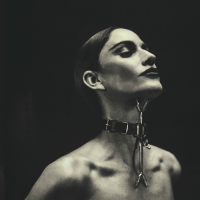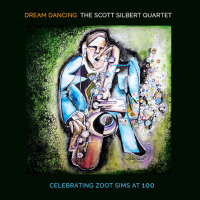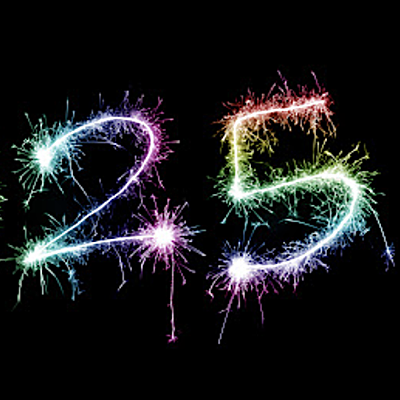Home » Search Center » Results: Detroit
Results for "Detroit"
Results for pages tagged "Detroit"...
Ron Carter

Born:
Ron Carter is among the most original, prolific, and influential bassists in jazz. With more than 2,000 albums to his credit, he has recorded with many of music's greats: Tommy Flanagan, Gil Evans, Lena Horne, Bill Evans, B.B. King, the Kronos Quartet, Dexter Gordon, Wes Montgomery, and Bobby Timmons. Ron Graduated the Eastman School in 1959 and packed up his belongings and moved to New York City with his wife, Janet. Later that year, Downbeat magazine listed Ron as #15 of 23 in their bass player poll. A great start. In the early 1960s he performed throughout the United States in concert halls and nightclubs with Jaki Byard and Eric Dolphy
Results for pages tagged "Detroit"...
James Carter

Born:
Sometimes it takes an extraordinary talent to inspire an unprecedented piece of music. For Puerto Rican-born composer Roberto Sierra, the epiphany struck in the midst of a tenor saxophone solo by James Carter, who was appearing as the featured soloist with legendary soprano Kathleen Battle. Long fascinated by the horn, Sierra immediately realized he had encountered a master capable of playing anything he could imagine. Working closely with Carter over several months, he composed a four-part concerto that seamlessly integrates the forms and harmonic language of contemporary classical music, Latin rhythms, and jazz’s improvisational imperative
Results for pages tagged "Detroit"...
Betty Carter

Born:
Betty Carter was born Lillie Mae Jones in Flint, Michigan, on May 16, 1930. At a young age, she began the study of piano at the Detroit Conservatory of Music, and by the time she was a teenager she was slready sitting in with Charlie Parker and other bop musicians when they performed in Detroit. After winning a local amateur contest, she turned professional at age 16, hooking up with the Lionel Hampton band by 1948, billed as Lorraine Carter. Hampton was the man who hung the nickname 'Betty Be-Bop' on her (a nickname she hated, as she found bebop limiting and wanted to do more than just scat), but it stuck, and ultimately she changed her stage name to Betty Carter
Results for pages tagged "Detroit"...
Kenny Burrell

Born:
After 40 years as a jazz professional, appearing on several hundred albums as leader and sideman, Kenny Burrell is among the handful of guitar greats who have forever changed the role of their instrument. Staunch musical integrity and discriminate taste coupled with matchless technique have made the guitarist nonpareil among his peers. "My goal is to play with good tone, good phrasing and to swing," says Burrell, "I strive for honesty in playing what I feel." "Master instrumentalist and composer," "virtuoso," "historic figure of American guitar." "Ellington's favorite guitar player"—this is a typical sampling of the critical praise routinely bestowed on Burrell, who pioneered the guitar-led trio with bass and drums in the late Fifties
Results for pages tagged "Detroit"...
Sonny Stitt

Born:
Edward "Sonny" Stitt was a quintessential saxophonist of the bebop idiom. He was also one of the most prolific saxophonists, recording over 100 records in his lifetime. He was nicknamed the "Lone Wolf" by jazz critic Dan Morgenstern, due to his relentless touring and his devotion to jazz.
Stitt was born in Boston, Massachusetts, and grew up in Saginaw, Michigan. Stitt had a musical background; his father taught music, his brother was a classically trained pianist, and his mother was a piano teacher. His earliest recordings were from 1945, with Stan Getz and Dizzy Gillespie. He had also experienced playing in some swing bands, though he mainly played in bop bands. Stitt featured in Tiny Bradshaw's big band in the early forties.
Results for pages tagged "Detroit"...
Louis Smith

Born:
Louis Smith is a talented, but under recorded, straight-ahead bop trumpeter who led two dates in the '50s before retiring to teach at the University of Michigan and the nearby Ann Arbor Public School system. For most of his career, he remained a teacher, making a brief comeback in the late '70s before returning to education. It wasn't until the mid-'90s that he began a recording career in earnest, turning out a series of albums for the Steeplechase label. A native of Memphis, Tennessee, Louis Smith began playing trumpet as a teenager. He graduated high school with a scholarship to Tennessee State University, where he studied music and became a member of the Tennessee State Collegians. Folllowing his college graduation, Smith did a little graduate work at Tennessee before transferring to the University of Michigan, where he studied with professor Clifford Lillya. At Michigan, he had opportunities to play with traveling musicians, including Miles Davis and Dizzy Gillespie. In January 1954, Smith was drafted into the Army, spending a little over a year and a half in his tour of duty. Once he left the Army in late 1955, he began teaching at the Booker T. Washington High School in Atlanta, Georgia. While teaching at Booker T. Washington, Smith continued playing bop and hard bop in clubs, and was able to jam with Cannaonball Adderley, Kenny Dorham, Donald Byrd, Lou Donaldson, Zoot Sims and Philly Joe Jones, among many others. In 1956, he made his recording debut as a sideman on Kenny Burrell's Swingin'. A year later, he had the opportunity to lead his own recording session for Tom Wilson's Boston-based label, Transition. He assembled a quintet featuring Cannonball Adderley (who performed under the pseudonym Buckshot La Funke), bassist Doug Watkins, drummer Art Taylor and pianists Duke Jordan and Tommy Flanagan, who alternated on the date. Transition went out of business before the label had the chance to release the record. Blue Note chief Alfred Lion purchased all the Transition masters and signed Smith to an exclusive contract, releasing the session as Here Comes Louis Smith. During 1958, the trumpeter played on two Blue Note sessions—Kenny Burrell's Blue Lights and Booker Little's Booker Little 4 and Max Roach—in addition to leading the date that became Smithville. That brief burst of activity turned out to be his only recording dates for 20 years. Smith moved back to the Ann Arbor, Michigan area, where he taught at the University of Michigan and public schools. Between 1978 and 1979, he cut a pair of albums — Just Friends and Prancis'—before returning to teaching. A decade later, Smith began his recording career in earnest. After playing on Mickey Turner's Sweet Lotus Lips in 1989, he signed with Steeplechase and recorded Ballads for Lulu in 1990. He didn't return to the studio for another four years, but he did record two albums — Silvering and Strike up the Band — in 1994. The Very Thought of You appeared in 1995. A year later, Smith recorded I Waited for You, which was followed by There Goes My Heart in 1997. - AMG. Louis Smith had a stroke in 2005. SEMJA has published bulletins every now and then about his recovery. Louis has been working to regain his ability to speak with the help of several types of therapies. One of the more successful is music therapy, which he has been involved with for almost a year. Lars Bjorn, SEMJA President, recently had a chance to visit with Louis at one of his sessions at the University of Michigan Residential Aphasia Program and came away amazed at the ability of music to bring back some of Louis' lost skills. Louis' progress is no doubt due to his hard work; his previous musical ability; the skills of his musical therapist, Lynn Chenoweth, who sees him in one-on-one and group sessions; and the constant support provided by his wife Lulu.
Results for pages tagged "Detroit"...
Dennis Rowland

Born:
Dennis Rowland is beloved by jazz devotees and theatergoers around the globe.
The Detroit native and Phoenix, Arizona resident was the voice of the world-renowned Count Basie Orchestra between 1977 and 1984, where he shared the stage with Ella Fitzgerald, Sarah Vaughan, Joe Williams and Tony Bennett. He is also featured on the Basie Band’s Grammy award-winning record "On the Road".
An electrifying live performer, Rowland's musical tours in recent years have taken him to Germany, Russia, England, Spain, Portugal, Scandinavia, the Czech Republic and Croatia. Stateside, he has performed at major jazz festivals, with the Lincoln Center Jazz Orchestra, and at metropolitan Phoenix-area jazz clubs and performing arts venues.
Results for pages tagged "Detroit"...
Frank Rosolino

Born:
Frank Rosolino will be remembered and respected throughout the contemporary jazz world for his mastery of the trombone, his uncanny ability to fit and work successfully with a wide range of musical ideas, and perhaps last but not entirely forgotten, his wit and capacity for comic entertainment. There has seldom been a time when any single aspect of this amazingly complex individual was submerged for any great length of time. He was always the superb performer, upfront individually as a musician or commercially as an entertainer. Frank Rosolino was born in Detroit on August 20, 1926 and began taking trombone lessons in the eighth grade or about the time he was 14 years of age
Results for pages tagged "Detroit"...
Donald Byrd

Born:
Trumpeter Donald Byrd was born in Detroit in 1932, his studies at Wayne State University (1954) were interrupted by military service, during which he played in an Air Force band. He then attended the Manhattan School of Music (MA in music education). At the same time he was the favorite studio trumpeter of the bop label Presitge (1956-58), though he also recorded frequently for Riverside and Blue Note.
He gave performances with George Wallington (1955), Art Blakey (1956), and along with Gigi Gryce was a member of the Jazz Lab Quintet (1957). He also performed with Max Roach, Sonny Rollins, John Coltrane, and others, before settling into a partnership with Pepper Adams (1958-61). After studying composition in Europe (1963-63) Byrd began a career in black music education, teaching at Rutgers, the Hampton Institute, Howard University, and (after receiving a law degree, 1976) North Carolina Central University; in 1982 he was awarded a doctorate by Columbia Teachers College.
Results for pages tagged "Detroit"...
Marcus Belgrave

Born:
Marcus Belgrave is Detroit’s internationally recognized jazz trumpet great. He came to prominence in the late 50’s, touring and recording with the late great Ray Charles’ Orchestra, at the height of Ray’s hit-making era. Marcus is heard as a trumpet soloist on some of Ray’s most famous “hits”... both albums and singles. He always pays tribute to Ray, who mentored him from the young age of 19. He is the only living member of Ray Charles’ small band horn section. He was also mentored by the Great Clifford Brown. Clifford’s early influence on the young Belgrave can still be heard in his tone





















